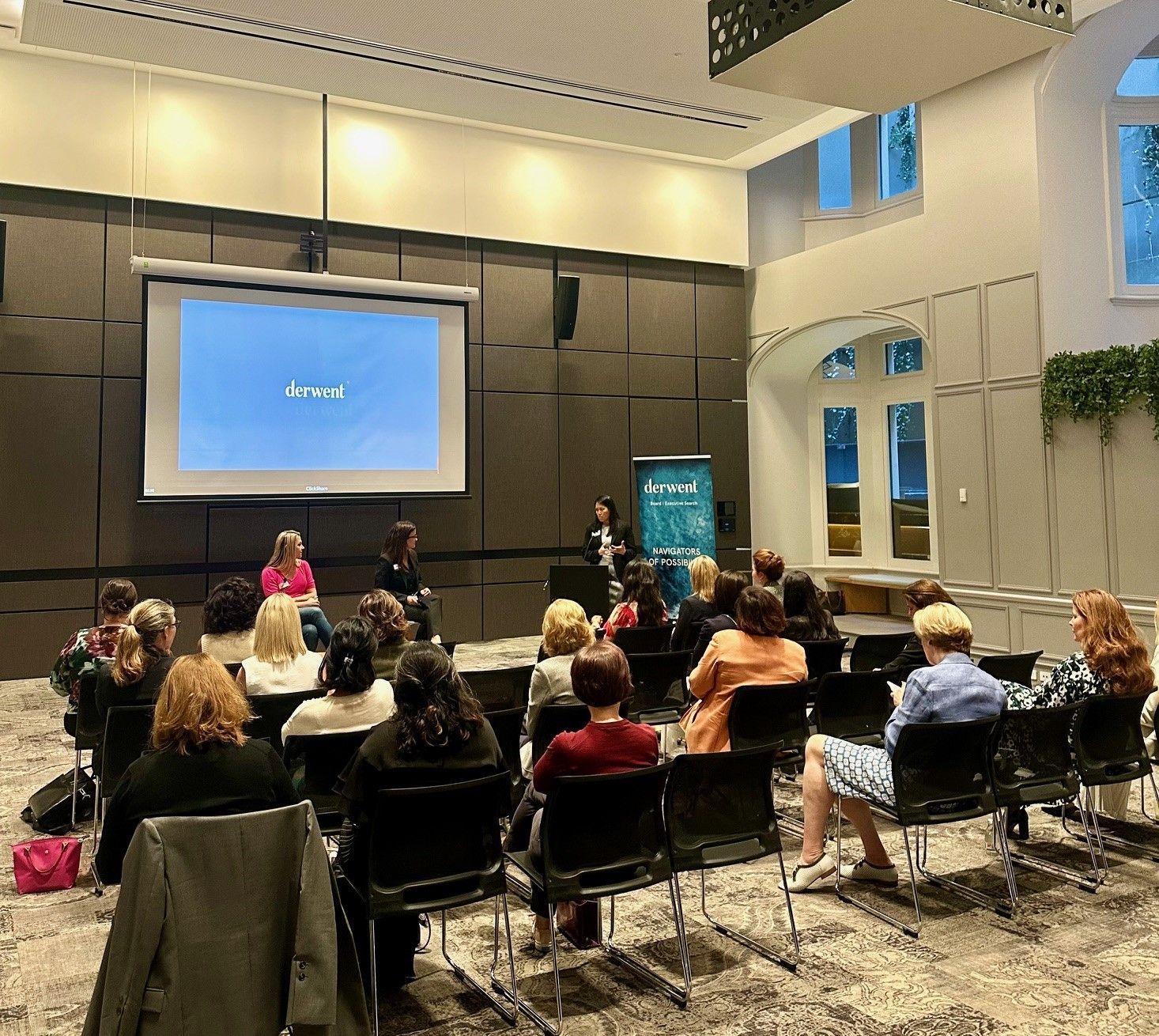News
Women in Tech Breakfast with Heather Cook & Memo Hayek

While women in tech may face unique challenges, such as feelings of imposter syndrome, they are increasingly making significant contributions to the industry.
Last week, Derwent hosted a “Women in Tech” breakfast to create a safe space for female leaders to share their challenges and discuss solutions that both executive search firms, like Derwent, and the community can implement to continuously promote diversity in the executive leadership team (ELT).
The AFR recently shared staggering figures regarding the decline of women’s paths to the CEO seat, highlighting how much work is still needed.
The conversation was led by guest speakers Heather Cook and Memo Hayek, both tech leaders in some of the country’s largest organisations. We heard anecdotes of senior female leaders often feeling the need to continuously prove themselves to be in a position of authority, despite being the technical experts in the room, leading to self-doubt.
So what advice is there for women in tech to overcome imposter syndrome?
- Be deliberate about building a strong network. Surround yourself not only with female mentors but also with allies of all genders. These advocates can accelerate your career and provide support when self-doubt arises. A trusted cohort that shares your values can be invaluable in combating imposter syndrome.
- Remember that everyone experiences imposter syndrome. It’s all about how we manage those thoughts. While the playing field is not level, reflecting on your successes and acknowledging that you are where you are for a reason can help you navigate these feelings.
- Careers involve continuous learning. Being open to learning and listening is a strength; you don’t need to know everything.
Heather shared her journey into the tech space, highlighting her fortunate experience of having a successful, strong-willed mother as a role model in tech. Similarly, Memo was inspired by her older sister, who studied computer science and paved the way for her own journey.
These stories underscore the importance of representation of women in senior leadership roles to create pathways and enable the next generation for success.
The Australian Government's Pathway to Diversity in STEM Review, published in February 2024, aims to increase representation of underrepresented groups in science, technology, engineering, and math (STEM) fields. The review states, “Australia must accelerate its efforts not just to address skill needs. Getting STEM-skilled people into these jobs is not enough. Diverse STEM-literate people on Boards and in leadership positions across all sectors is critical to ensure good decision-making in an increasingly technologically advanced economy. Retaining these people in these positions is also critical for ensuring that improved decision-making capability builds over the long-term.”
Organisation's need to do more to promote senior female tech talent, but also to encourage younger female generations to enter into the STEM workforce.
Support from both women and men for the female community is of utmost importance, especially where this representation is lacking.
At Derwent, we are helping our clients navigate these conversations and meet diversity targets, while advocating and proactively building a future pipeline of female leaders to ensure that representation remains a priority.
Share this article
Recent Articles






